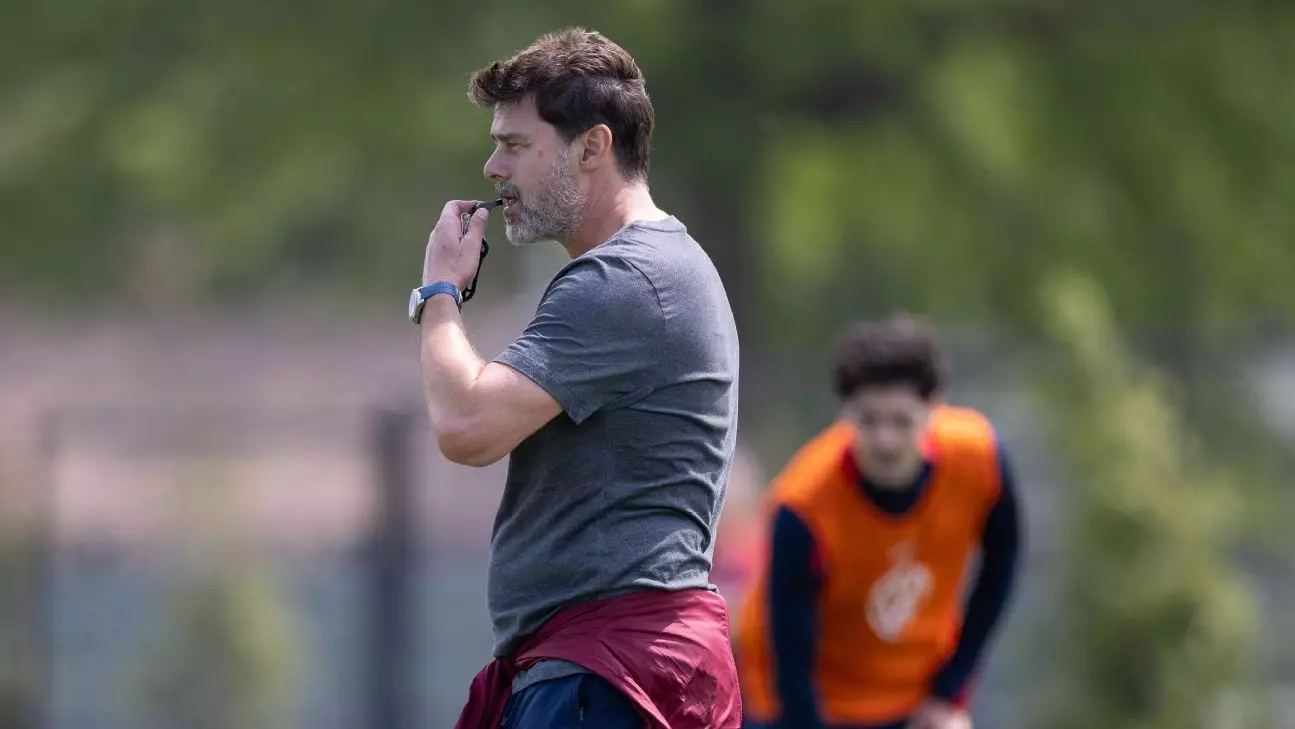In the world of soccer, the unpredictability of player availability often shapes the narrative of any tournament. Currently, the United States men’s national team (USMNT) is navigating a challenging landscape led by their new head coach, Mauricio Pochettino. With a high-stakes competition like the Concacaf Gold Cup on the horizon, Pochettino emphasizes a keen mindset focused on resilience rather than dwelling on setbacks. Notably, the absence of key players like Christian Pulisic and Weston McKennie due to fatigue and club commitments poses a significant hurdle, yet the coach’s philosophy encourages the team to rally and harness the depth within their player pool.
Pochettino’s roster for the Gold Cup includes a notable mix of seasoned athletes and newcomers, with seven uncapped players illustrating a seismic strategic shift towards fostering fresh talent. This shift reflects a broader vision: to create an enduring legacy for the team in anticipation of the impending World Cup, which will unfold on home soil. Pochettino’s insistence on “trusting the roster” signals a definitive transition from conventional reliance on star players to a more holistic approach. As the team prepares for its friendly against Turkey, it’s evident that the coaching staff grapples with the realization that success may not hinge solely on established names but rather on collective teamwork and performance under pressure.
Transforming Challenges into Opportunities
Pochettino’s perspective on adversity is an enlightening one. Instead of succumbing to the disappointment of missing key players, he regards this moment as an opportunity for lesser-known figures to step into the spotlight. His philosophy highlights not just fielding a competitive team, but also nurturing an environment where players can vie for their places on the World Cup roster. This adaptive mindset fosters resilience among the athletes and instills a culture of hard work and dedication.
The undercurrents of Pochettino’s leadership style also gently nudge against the notion of complacency that has lingered in previous USMNT gatherings. These subtle critiques are not mere criticisms; they serve as a call to action for players to recalibrate their attitudes. Tyler Adams, the team captain, has communicated the shift in mentality spearheaded by Pochettino, focusing on the importance of maintaining a balance between enjoying the sport and dedicating themselves to rigorous training. It’s this blend of discipline and enjoyment that potentially lays the groundwork for a transformative era in American soccer.
Building a Cohesive Team Ahead of the Gold Cup
As the countdown to the Gold Cup begins, the real challenge lies in building camaraderie among a fluctuating roster. Pochettino recognizes that the window for preparation is narrow, but he views the upcoming month as a vital period for integration and connection. It’s during these times of training and competition that players can solidify relationships, developing trust and understanding that transcends individual skill sets. This holistic approach to team chemistry is not only essential for the Gold Cup but also lays a foundational philosophy as they gear up for the World Cup.
The nuanced concept of “opportunity” is pervasive throughout Pochettino’s training philosophy. Players are made aware that every minute on the field presents a chance to showcase their abilities and establish their worth within the squad. This isn’t merely about competing for a place in the starting lineup but about the larger goal—transforming the USMNT into a resilient and unified force capable of contending against elite teams internationally.
This dedication to instilling a profound team spirit could prove invaluable in a tournament where teamwork often eclipses individual brilliance. Ultimately, Pochettino’s strategic vision focuses not only on immediate results but also on creating a legacy of competitive spirit and excellence in U.S. soccer.
In the unfolding narrative of the USMNT, Pochettino’s unique approach, characterized by optimism and adaptability, offers a refreshing look into a team at a crossroads. Rather than focusing on the obstacles presented by player unavailability, the commitment to trust in the roster exemplifies a broader ambition. For players, coaches, and fans alike, the journey has just begun, and the possibilities are as expansive as the American soccer landscape itself.


Leave a Reply